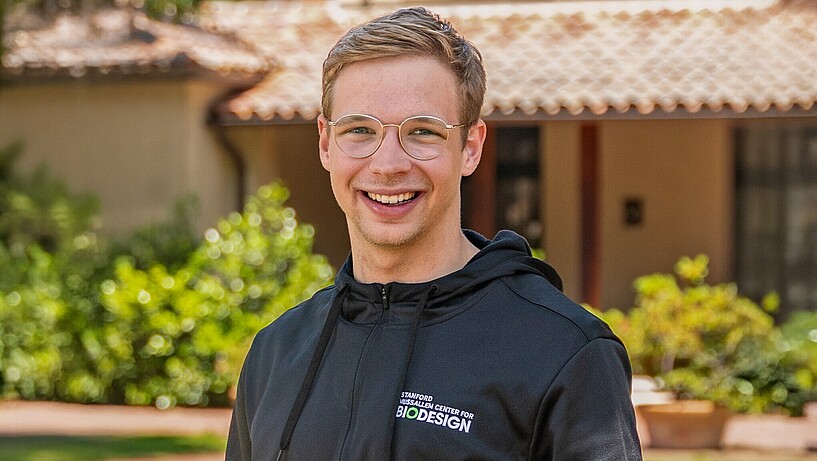At the Biodesign Center Paul works on the so-called Spezi-Framework: A collection of around thirty software components that are used to decrease the time needed to develop apps for clinical studies. This standard is already widely used in the USA and is also becoming increasingly important in Germany. The aim of the framework is to reduce the development time of such apps from several months to just a few days.
Paul became aware of the Spezi project two years ago on X (formerly Twitter). A year later, he started contributing improvements to the ecosystem. After several contributions, he came in direct contact with the project management, who then asked him in autumn 2024 if he would like to work with the team on site. He started as an ‘undergraduate visiting research intern’ at the elite university near Silicon Valley in spring 2025. Paul describes the work atmosphere on campus: ‘The exchange with the researchers is a wonderful mix of English and German, as some of the team are actively trying to learn the language and several other researchers here on campus come from TU Munich and ETH Zurich.’
It is interesting to note that Paul is only in the fourth semester of his Bachelor's degree programme at HAW Hamburg. Also, anyone reading ‘Mechanical Engineering and Production’ might be surprised to learn about a research project in digital health. How does that fit together? Growing up in Heidelberg, Paul already had contact with medicine as a teenager. From his first temporary job on the telephone switchboard at the university hospital, to his own start-up in the field of medicine and technology and an internship at Siemens Healthineers, where he built and maintained magnetic resonance tomographs, he has always stayed close to the medical field.

